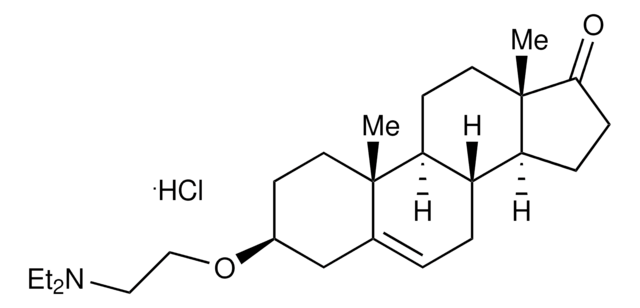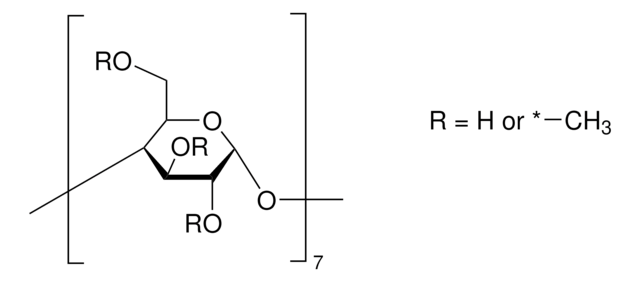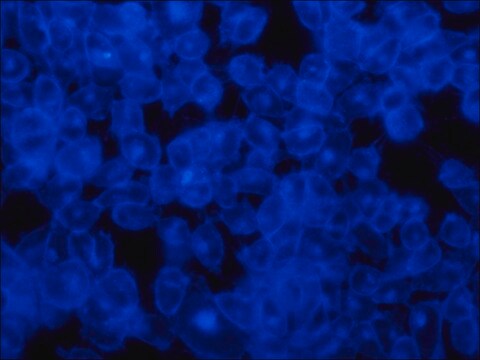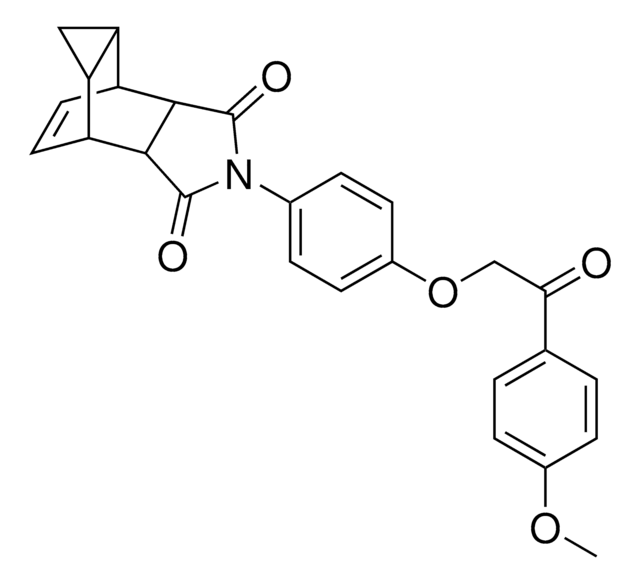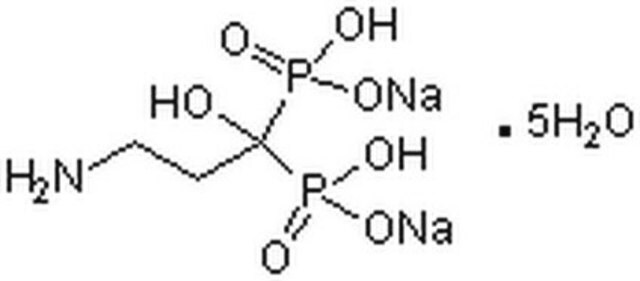662015
U18666A
A cell-permeable, amphiphilic amino-steroid that alters intracellular membrane protein trafficking by impairing intracellular biosynthesis and transport of LDL-derived cholesterol.
Synonym(s):
U18666A, 3β-(2-Diethylaminoethoxy)androst-5-en-17-one, HCl
About This Item
Recommended Products
Quality Level
Assay
≥95% (HPLC)
form
lyophilized solid
manufacturer/tradename
Calbiochem®
storage condition
OK to freeze
desiccated (hygroscopic)
color
white
solubility
water: 10 mg/mL
shipped in
ambient
storage temp.
2-8°C
InChI
1S/C25H41NO2.ClH/c1-5-26(6-2)15-16-28-19-9-7-18-8-10-20-21-11-12-23(27)24(21,3)14-13-22(20)25(18,4)17-19;/h8,19-22H,5-7,9-17H2,1-4H3;1H
InChI key
ICPRVJHNLABCSA-UHFFFAOYSA-N
General description
Biochem/physiol Actions
Activity of δ8-sterol isomerase
Packaging
Warning
Reconstitution
Other Notes
Kobayashi, T., et al. 1998. Nature392, 193.
Liscum, L. and Faust, J.R., 1989. J. Biol. Chem.264, 11796.
Sexton, R.C., et al. 1983. Biochemistry22, 5687.
Bierkamper, G.G. and Cenedella, R.J., 1978. Brain Res.150, 343.
Legal Information
Storage Class Code
11 - Combustible Solids
WGK
WGK 3
Flash Point(F)
Not applicable
Flash Point(C)
Not applicable
Certificates of Analysis (COA)
Search for Certificates of Analysis (COA) by entering the products Lot/Batch Number. Lot and Batch Numbers can be found on a product’s label following the words ‘Lot’ or ‘Batch’.
Already Own This Product?
Find documentation for the products that you have recently purchased in the Document Library.
Our team of scientists has experience in all areas of research including Life Science, Material Science, Chemical Synthesis, Chromatography, Analytical and many others.
Contact Technical Service